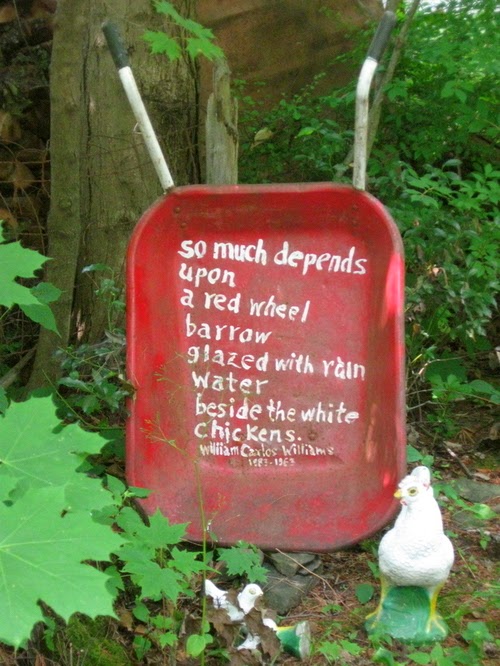Greetings!
We had a great class yesterday. Beginning our class with a Quick Write,
we celebrated William Shakespeare's birthday (a day late) with our own
stories about "star crossed overs." I asked them to be creative about
pairing 2 unlikely candidates. If this particular Quick Write didn't
inspire, the students were also given the choice of writing about Batman
(75th anniversary) or Earth Day (40th anniversary).
Students handed in their News Story Final Drafts
today, along with their self-evaluations. I had asked the students to
use the same rubric that I use to grade/score the papers. Our next
essay is a Re-Write of one of the essays that they've written for
this class this year. They might want to choose a paper that they feel
needs improving or a favorite essay that they would like to work more
on.
We had a a good amount of time to talk through some of our Poetry selections.
We read selections from William Shakespeare, John Donne, and John
Milton. These early British poets are not always the easiest to
understand. I appreciate that the students applied themselves to our
discussion.
We're winding down our semester of classes, and part of our next two classes will be our "Poetry Jam."
Combining the ideas of a poetry slam (a competition featuring original
poems) and Poetry Out Loud (a competition featuring pre-selected poems)
students will read or recite poems for the class. James Stephenson set up a bracket for us to use. I've divided the
students into teams (please remember your number!). They are to bring 1
- 2 poems next week. We will take time for some team collaboration
before starting.
We ran out of time to discuss the Reflection Paper
that I would like them to write. Next week, as the class's Quick
Write, I will be asking them to take a longer time to write about what
they've learned about writing and about themselves as writers this
year. I would like each student to take some time before class time to
brainstorm their ideas about this topic. If they would like, they can
write some notes or compose a kind of pre-write that they can use to
answer this. I'm attaching a link to a scholarly article about the
value of reflection as part of the learning process.
Assignments for Next Week:
-- Essay Re-write
-- Select 1 - 2 poems
-- Reflection paper brainstorming
This week's links:
Have a beautiful weekend!
Mrs. Prichard


